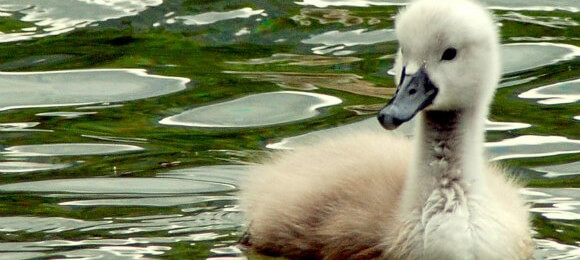This article originally appeared on PETA Prime.
World peace is always a relevant topic. Recently, however, I realized that I might actually be sabotaging that goal and negatively impacting animals to boot! Let me explain.
Campaigning for the rights of animals for more than 30 years, I thought I’d covered all the bases. As a passionate vegan, I’d rejected fur, leather, wool, down, and silk. I only purchase cruelty-free cosmetics and household products and have been active in my local animal rights group for years. But there was one thing I wasn’t doing! I came to realize that my vocabulary may be compromising my advocacy!
You’d likely disagree if I suggested that you might be referring to animals disparagingly, but I invite you to see if any of the following phrases ever sneak into your conversations:
- I can kill two birds with one stone.
- You can’t beat a dead horse.
- He’s a dirty dog (or rat).
- She’s such a fat pig.
I wondered … does the road to a sustainable world peace start by developing and articulating consistent word peace? I would become my first student, and I am currently writing a book about it!
While word peace points out our tendency to use animals to reinforce negative messages about each other, it also creates a linguistic safety net to rescue us from a lifetime of disjointed dialogue-a net that helps to infuse peace into the words we speak.
Compassionate conversation, then, chips away at the wall of desensitization separating us from experiencing a deeper level of compassion and empathy with the world’s animals and, ultimately, with each other.
Some say that when we intentionally speak insensitively, we create a vibrational consequence that affects not just our bodies but also our minds, our hearts, and our very souls. It also impacts those around us, influencing the well-being of everyone we interact with. However-and here’s the newsflash-unintentional utterances do the very same thing. In fact, they may be even more damaging unless we acknowledge a fundamental disconnect between what we truly believe and how poorly we communicate it.
Word peace has a particular message, focusing squarely upon the words we use that impact animals-the innocents with whom we share the planet, who are frequently the most disparaged-and how our careless communication choices may just contribute to that status. Word peace proposes a change … a new and discriminating awareness that will shift the paradigm from distance and disassociation to compassion and connection.
I invite you to join me on an excursion to enlightened expression where dedicated dialogue becomes word peace. Once you start paying attention to your words, you will be amazed at the deep patterns we’ve created that perpetuate verbal violence. You’ll also experience the joy of catching yourself in the act and creating immediate change.
Remember: Our thoughts become our experiences-and our words communicate them.
Daunted? Don’t be! Word peace is right on the tip of your tongue!
What phrases do you use that need word peace? That book’s not done yet!
Text VEG to 73822 to get the latest vegan lifestyle tips, recipes, and urgent action alerts texted right to your phone.
Terms for automated texts/calls from PETA: https://peta.vg/txt. Text STOP to end, HELP for more info. Msg/data rates may apply. U.S. only.








